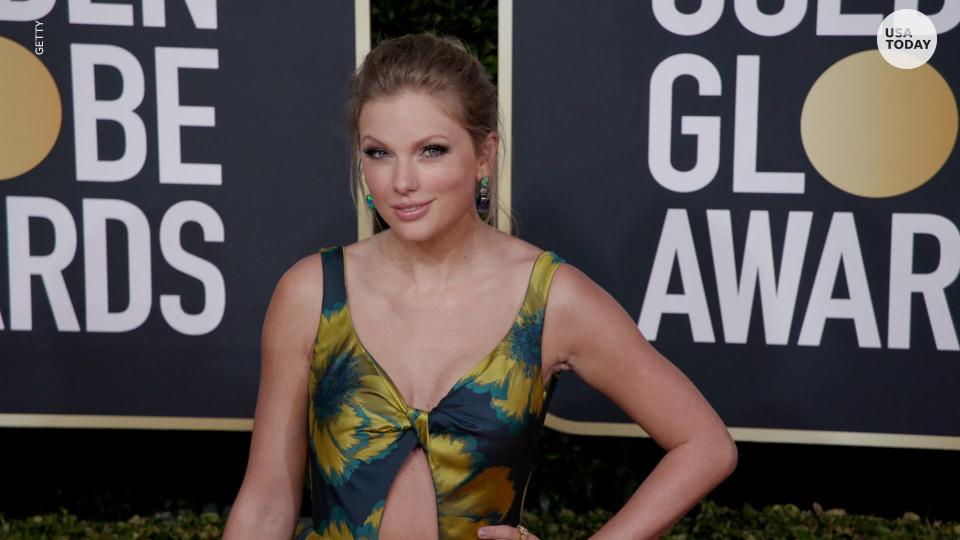Kit Connor and the dangers of queerbaiting accusations
- Oops!Something went wrong.Please try again later.
- Oops!Something went wrong.Please try again later.
Kit Connor, star of Netflix's "Heartstopper," recently came out as bisexual. But not the way he wanted.
"Back for a minute. I'm bi. congrats for forcing an 18 year old to out himself," Connor wrote in a short tweet. "I think some of you missed the point of the show. bye."
Gay coming-of-age drama "Heartstopper" focuses on a budding romance between doe-eyed high schoolers Nick and Charlie – played by Connor and Joe Locke, respectively – with Nick not sure of his sexuality. Fans accused the star of "queerbaiting" – when a straight, cisgender person seems to cash in on LGBTQ fashion, music, acting roles and more.
Experts say this Kit Connor debacle shows what happens when queerbaiting goes awry – but that doesn't mean celebrities are immune from accountability.
"There is a vast difference between audiences raising legitimate concerns about exploitative, LGBTQ-mediated representations and queerbaiting and the online trolling of Kit Connor," says Melvin Williams, associate professor of communication and media studies at Pace University.
In case you missed: Harry Styles accused of 'queerbaiting.' What is that – and why does it matter?
'My Policeman' doesn't shy away from gay sex. We shouldn't, either.
back for a minute. i’m bi. congrats for forcing an 18 year old to out himself. i think some of you missed the point of the show. bye
— Kit Connor (@kit_connor) October 31, 2022
When fan culture goes too far
"Stans" – ultrafans who will go to any length to prove their devotion to the celebrities of their choosing – bombard social media.
Many LGBTQ fans of certain stars desperately wish celebrities are gay – so much so that they spin narratives that may not be true. Take fans of Taylor Swift, Shawn Mendes and Ariana Grande. Some Swift fans call themselves "Gaylors," for example. They pick apart song lyrics and try to piece together a narrative of Swift's queerness despite no statement from the Grammy winner that would verify this. (The singer told Vogue in 2019 that she is not a member of the LGBTQ community.)
With actors, the emotional importance of knowing that somebody is bringing their "authentic self" to the roles they're playing becomes becomes paramount for some viewers, says Michael Bronski, professor of the practice in media and activism in studies of women, gender and sexuality at Harvard University.

But this can prove especially harmful if said celebrity is indeed queer and not ready to share that.
"The case of Kit Connor reveals the darker sides of digital media stan culture, queerbaiting discussions and the dangers of outing LGBTQ+ community members – famous and non-famous – prematurely and without their consent," Williams says.
Yikes: 'Stan' culture needs to stop – or at least radically change. Here's why.
This is even more true if a celebrity is young. "The accusation of queerbaiting is clearly problematic when the celebrity involved is young and so, not only in a time of questioning and exploration, but also psychically vulnerable," says Nadine Hubbs, professor of women’s and gender studies and music at the University of Michigan.
But shouldn't celebrities expect endless questioning about their personal lives, unlike the average person?
Yes and no. "The nature of celebrity journalism is to glean as much information as possible about celebrities we arguably know too well," Williams says. "Still, celebrities and non-celebrities do not owe the public a confirmation or explanation about their sexual orientations, and disclosures should remain a matter of choice."
Yes, 'Bros' flopped at the box office. But Hollywood must keep making LGBTQ movies, anyway.

Bronski adds: "I don't want to say that there's an extra burden on people to come out because they happen to be involved in show business." Some fear being an out performer could hurt their careers. And it's not as if LGBTQ films or series are always successful. Recent flops include the romantic comedy "Bros" and the canceled Peacock series "Queer as Folk."
"It's foolish to ignore the fact that coming out has real ramifications in the real world," he says.
Sigh: 'Is Ariana Grande bisexual?' Here's why that question is problematic
'We should not force a celebrity figure to come out'
Connor's situation should teach us several lessons.
One: If you really feel that someone is queerbaiting or profiting from queer representation and you want to know who they "really are," consider why that's so important to you, Bronski says.
More on Taylor Swift: Taylor Swift returns to pop with poetic 'Midnights,' her most deeply personal album yet
And two: No one should feel obligated to come out.
"We should not force a celebrity figure to come out to 'legitimize' their authenticity as an LGBTQ character on a show," Williams says. "Those who accused Kit of queerbaiting and sparked his online harassment must acknowledge the consequences and impacts on his mental health and safety as a bisexual public figure."
One thing is clear: This is not the way Kit Connor wanted this to go.
'I exhaled for the first time': 'Queer as Folk' reboot cast spills on warm behind-the-scenes energy
This article originally appeared on USA TODAY: What Kit Connor, Taylor Swift can teach about queerbaiting accusations

